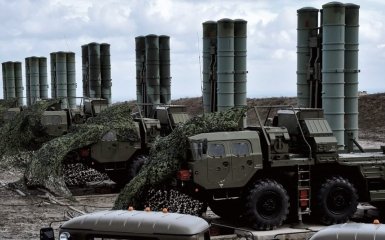Western military analysts note that Russia's continued waging of a criminal war against Ukraine will force it to produce weapons of very dubious quality.
How long will Russia have enough weapons for the war against Ukraine
It is noted that currently, the occupation army of the Russian Federation is trying to increase the pressure on the positions of the Ukrainian military with missiles, tanks and shells.
However, due to the increase in the production of weapons, the Russian economy is suffering, and the quality of new weapons is becoming more and more questionable.
Senior NATO officials believe that the Kremlin will likely seek to continue the criminal war against Ukraine for the next 2-5 years.
Journalists of the publication, regarding at least 2 European intelligence agencies, note that Russia currently has sufficient weapons and production capacity to continue the war against Ukraine for the next several years.
However, the increase in arms production cannot be permanent, as it negatively affects the Russian economy.
The Russian economy is approaching a recession due to the outflow of investment and an acute shortage of labour and necessary materials from other industries.
The publication notes that the Russian Federation's criminal army currently uses old artillery ammunition stocks.
Analysts of the Royal United Service Institute of Great Britain emphasise that this stockpile is approximately 3 million artillery shells, a large part of which are in non-combat condition.
At the same time, the Institute's analysts and other Western experts emphasise that currently, Russia's ammunition production facilities do not meet the needs of the occupying army in the war against Ukraine.
The article emphasises that this makes Russia more dependent on China, North Korea and Iran.
According to some Western analysts, the effectiveness of the military-industrial complex of the Russian Federation is generally questionable.
For example, Russia does not distinguish between newly produced samples of armoured vehicles and old models taken out of storage and repaired.
The Omsktransmash Tank Plant in Omsk produces tanks similar to the T-62, which have not been made since the 1970s, and the T-54/55, which were first developed after World War II. These older tanks are not as good quality as the newer models, and their stock will run out over time.
What the EU says about ammunition for Ukraine
According to Josep Borrell, the EU High Commissioner for Diplomacy, the EU countries' weapons stockpiles are currently exhausted, and the volume of military production must increase.
Borrell emphasised that Russia's war against Ukraine brought back the need for EU countries to increase the volume of their military production.
To respond to Russian aggression, we provided Ukraine with weapons, mostly from existing stockpiles. But after two years of high-intensity war, the available reserves have been exhausted, and the conflict has turned from a war of reserves into a war of production, — noted the head of European diplomacy.
Borrell emphasised that only a few countries currently make up 90% of the EU's defence industry.
According to him, the defence industry has an annual turnover of 70 billion euros and includes 500,000 workers.
However, European armies import most of their weapons and equipment.
According to Borrell, only 40% of the needs are covered by the EU reserves, and since the beginning of the full-scale Russian invasion of Ukraine, the import of weapons has increased.
Borrell called for overcoming the fragmentation of the European defence industry through more joint procurement and projects and announced the creation of a Defence Readiness Council.
In addition, the diplomat stated the need to strengthen cooperation with Ukraine in this area.
Strengthening the Ukrainian defence industry and helping it to cooperate closely with European industry will be part of the EU's future commitments to Ukraine's security. To stimulate this cooperation, this year we will hold the EU-Ukraine Defense Industry Forum and open the EU Defense Innovation Office in Kyiv, Borrell said.
According to him, to counter aggression by the Russian Federation, the EU may approve the use of profits from the Russian frozen assets for the purchase of weapons for Ukraine.
If the member states agree, it would be appropriate to use these resources to provide additional military support to Ukraine through the European Peace Fund. In the long term, we could also use these funds to support the Ukrainian defense and industrial base, Borrell emphasised.




